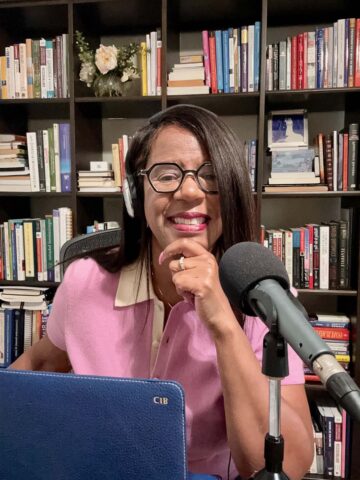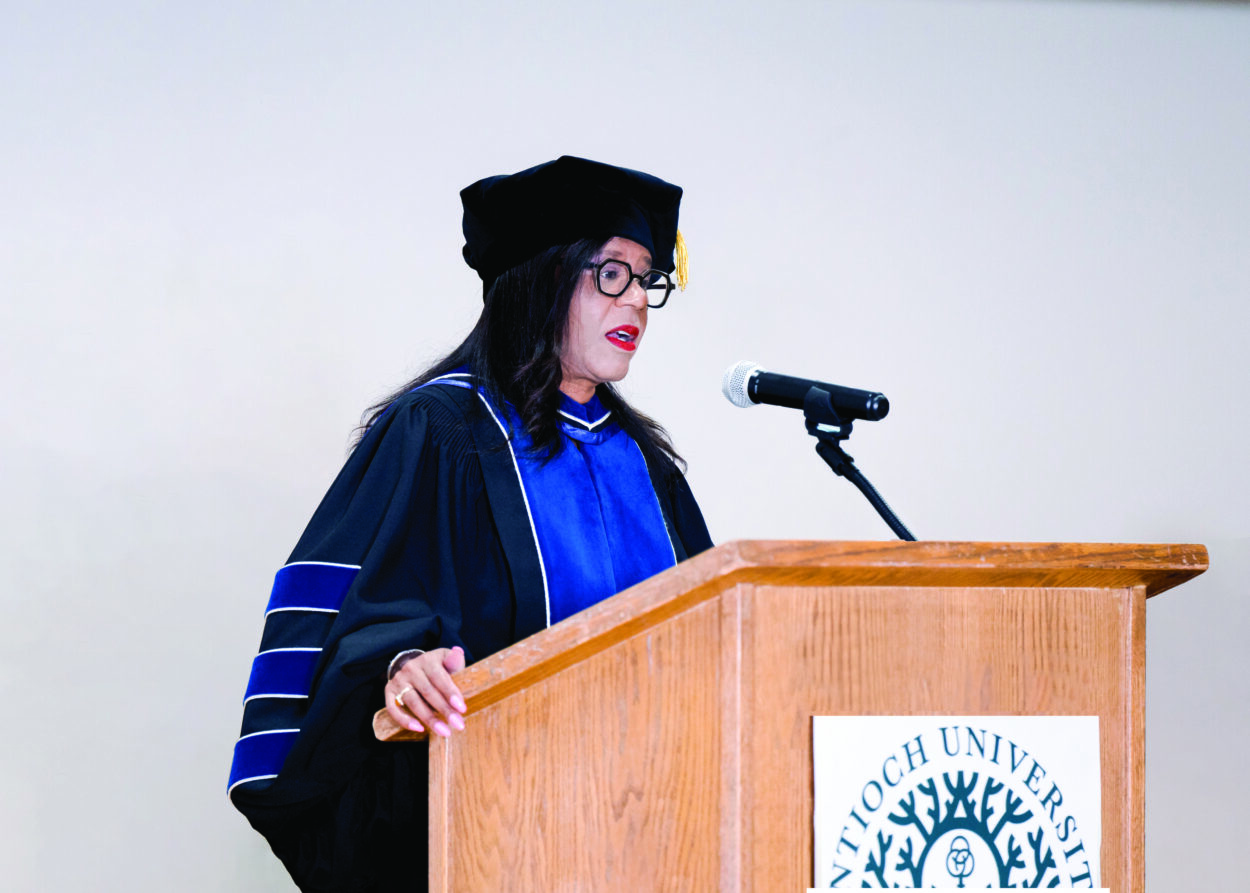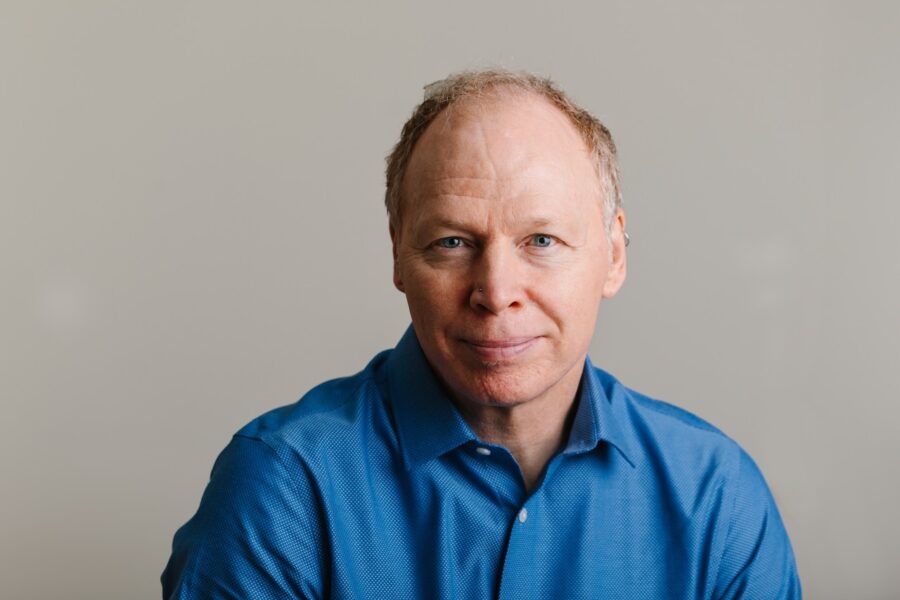On a winter evening in 1991, in a hotel room in Charlotte, North Carolina, Carole Isom-Barnes found herself considering what she wanted to do with her life. The snow fell at a tender pace. The streets were empty and quiet, with no sound of traffic and vibrant city ambiance. Horns, sirens, chatter, and the like were muted. During this still moment of inner reflection, a profound shift occurred: Isom-Barnes realized that North Carolina was where she needed to be. Earlier that day, she had interviewed for a role at Bank of America, and now she decided that she would embrace the unknown. “Something in my gut said do it,” explains Isom-Barnes. “So I did.”
Barnes had grown up in Boston, and she had been working in banking there after graduating with her BA from Brandeis University. The idea of applying for this job had been relatively random—but its effects on her life ended up being profound. She worked at Bank of America for over 25 years, rising to senior leadership in the North Carolina area. And she became deeply devoted to her chosen home, serving as a volunteer on many boards and committees in the Charlotte area, earning her master’s degree at a local university, and eventually becoming a professor there.
This pattern of making a choice and then seeing it through to its furthest ends is one that she would repeat again when she decided to enroll in the Antioch PhD in Leadership and Change. That decision led her not just to earning her doctorate in 2010 but also to publishing her dissertation as a book (Layoff: American Dream Interrupted) and in 2013 being asked to join Antioch University’s Board of Governors. After a decade serving on the board, today she is halfway through a two-year term as Board Chair, a position of great power and influence over the entire university.
For Isom-Barnes, this role is providing another moment of looking back and considering what brought her to this point and where she is going, in part because she is the first Black woman to serve as Board Chair. But this moment also calls for reflection, because Isom-Barnes is playing a key role in helping guide this institution that she loves through a time of great changes and possibility. Through it all she is bringing her past experiences and the insights of a career spent leading to the cause of helping others to find their power and pursue purpose.

Developing Leadership and Questioning Culture
As a child growing up in Boston, Massachusetts, Isom-Barnes was guided to be fearless, independent, and strong-willed. She first started walking to school as a seven-year-old, helped along by her older brother. Meanwhile, her father encouraged her to develop skills beyond those expected under gender norms at the time. “My father was the first feminist I’d ever met,” Isom-Barnes says. “He taught me skills, such as how to manage money or change a car’s tire or oil, so that I’d become self-sufficient.”
She embraced the culture of Boston at that time, which could be rough-and-tumble and also energized by the zeitgeist of the ’60s with its Civil Rights Movement and counterculture. “I learned early on the importance of your leadership,” Isom-Barnes explains. She learned the importance of “adapting your leadership to the culture that you are in.”
Ironically, though, when she started her first full-time corporate job, she struggled to adapt. By the end of the very first week at Prudential Insurance Company, Isom-Barnes was sure the role was not her passion. She called up her dad and said, “I don’t think that I’m wired for this type of work. I think I’m wired for greater things. I’m supposed to do more.” But she stuck it out, and the work itself did eventually lead to some of those greater things.
Throughout her 26-year tenure at Bank of America, Isom-Barnes held various leadership positions in Operations, Risk Management, Strategic Planning, Process Improvement, Human Resources, and Relationship Management. Working at this bank gave her a deep understanding of organizational dynamics, and it inspired her interest in organizational change. This led her first to study for a Master’s in Organizational Communication at Queens University of Charlotte, and eventually she decided that she wanted to find a doctoral program that would feed her passion for social justice while positioning her to meet the needs of her clients. This led her straight to the Antioch PhD in Leadership and Change.
While at Antioch, Isom-Barnes decided that she wanted to focus her research on the experience of other African Americans working in corporate spaces. She had in her recent memory the cuts that swept through the financial industry during the Great Recession, and while she had not herself been laid off, she had seen many colleagues be told to pack their box and find a new job—and she had kept a detailed, real-time journal of this experience, which for the purpose of her dissertation served as an autoethnography. This source document, along with phenomenological interviews with six other executives, yielded a holistic portrait of the lived experience of Black people during layoffs.
Isom-Barnes defended this dissertation, “Not So Black and White: The Color of Perception in Corporate Layoffs” in 2010. And after graduating she developed it into her 2012 book, Layoff: American Dream Interrupted.
Reflection Leads to Private Consulting
By the time Isom-Barnes had climbed the corporate ladder all the way to serving as a senior leader within Bank of America, she began to feel a growing frustration. Something was missing. She couldn’t quite put her finger on it, but the sense of unease and restlessness lingered. Isom-Barnes recalls asking herself, “What did I want to do with my life?” She was successful, yes—but how could that success merge with passion? How could her work be more in tune with her moral purpose as a human?
“My father was the first feminist I’d ever met,” Isom-Barnes says. “He taught me skills, such as how to manage money or change a car’s tire or oil, so that I’d become self-sufficient.”
“I was already going into companies and helping them reach their potential and helping other leaders reach their potential,” Isom-Barnes explains. “I knew my whole life that’s what I was destined for, but I was too afraid to step out and do that.”
In 2010, she put that fear behind her and started a private consulting practice, Xperience Leadership, LLC, even as she continued in her position at Bank of America—where she began working on an exit strategy. The eventual decision to retire from her position at Bank of America allowed Isom-Barnes to pursue her true passions and focus on offering full-time support for her clients. Today her work includes consulting with organizations to increase performance or with individuals as they try to balance demanding professional lives with personal growth and fulfillment.
Having experienced the influence of mentors in her own life, Isom-Barnes strongly believes in the power of mentorship. This has led her to seek to be a mentor herself, touching into the transformative potential of guiding and supporting others.
Helping to Lead Antioch as a Global Beacon
In 2013, Barnes accepted an invitation to join Antioch University’s Board of Governors, and last year she started a two-year term as Board Chair. She made history just by accepting this role, as she is the first Black woman to be elected to this position. For Antioch, having the representation of someone from Isom-Barnes’s identity in this position was long overdue, especially as the institution has long been proud of being among the first institutions of higher education in the country to welcome Black students to study alongside white ones and to invite women to study and teach at equal levels as men.
“Serving as chair symbolizes our progress and who we are as a university,” says Isom-Barnes. She sees serving in this role as partly a way to embody changes that are needed in organizations across the country. “Antioch has always been at the forefront of change,” she explains, “and at a time when Black women hold only 4% of corporate board seats in this country and even fewer serve as board chairs, I am privileged to serve an institution that supports inclusion and leads the way.”
Representation matters, and Isom-Barnes’ presence brings a distinct perspective to Antioch University and its board. “Because of my world experiences,” she explains, “I am sensitive to issues surrounding inclusion and making sure that all voices and perspectives are represented as we make the best decisions on behalf of Antioch.”
“We are reclaiming our history as innovators, transforming higher education as others are watching. I am proud to be part of the journey.”
The Antioch Board of Governors that she leads is one of the most diverse in the university’s history and includes many different voices and experiences. This diversity and inclusion is a big part of why Isom-Barnes holds the institution so dear. “Antioch stands for democracy, human rights, racial and social justice,” she says. “If we do not live our values in our interactions with each other as board members, faculty, staff, and students, or in our curriculum, it is simply rhetoric.”
Antioch’s current Chancellor, Bill Groves, agrees. He says, “Carole is an incredible leader and a true asset to Antioch’s board. She is Antiochian through and through, both as an alum and as an agent for change in the world whose values dovetail with Antioch’s. We are lucky to have her as board president.”
Barnes is enthusiastic to be helping plan out Antioch’s future. There are strategic shifts on the horizon that will advance Antioch’s mission and its societal impact on a global scale. The biggest of these is the founding of the Coalition for the Common Good that was formalized on August 15. The Coalition, Isom-Barnes explains, “serves as a new model for higher education and as another example of Antioch being a change agent for democracy and justice.”
These initiatives are expanding Antioch’s reach and making higher education accessible to more students around the country.“This is an exciting time for Antioch,” Isom-Barnes says. “I’m certain that we have committed and capable leaders in position to uphold our mission. We are reclaiming our history as innovators, transforming higher education as others are watching. I am proud to be part of the journey.”
A Journey of Inspiration Continues
Looking forward, Isom-Barnes hopes her consulting work will continue inspiring individuals to embrace their power and create positive change. And as Board Chair, she remains dedicated to dismantling inequities and promoting a more inclusive world.
This, Isom-Barnes says, only happens when you embrace your power.“I think you’re a boss when you feel good about you. You’re leaving some type of impact for people that are around you and those coming up behind you in a positive way.”
This is what is most inspiring about Isom-Barnes. She’s an ally and advocate who looks for openings to mentor and support. Despite her many achievements and accolades, she remains humble and reachable. She doesn’t like being the center of attention or situations being made about her. She’s about lifting and supporting others as she climbs.
Even at the end of an hour-long interview with a freelance reporter, she can’t resist turning the conversation around and asking about the reporter’s own leadership journey—and ways she can support it. Within ten minutes, she’s sharing solid solutions that the reporter ends up actively putting into place.
It’s all in how Isom-Barnes sees leadership. “Being a boss means leaving no casualties along the way,” she says. “You’re helping people reach their fullest potential.”




